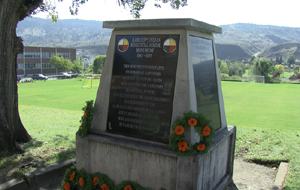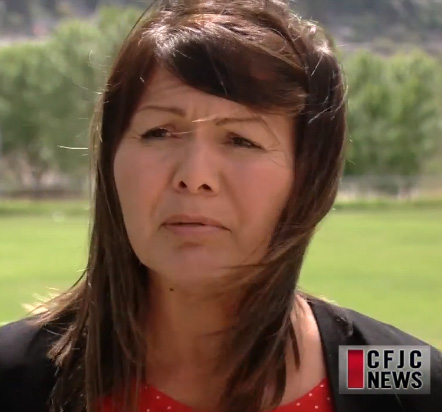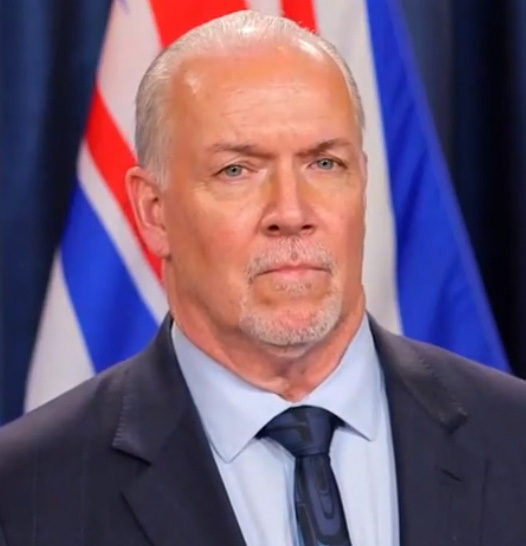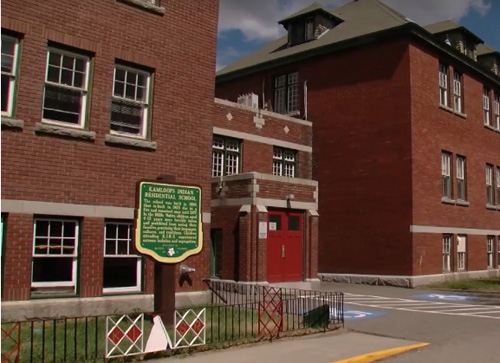
Friday May 28, 2021 | VICTORIA, BC
Commentary & Premier’s Statement – Mary P Brooke, Editor | Island Social Trends
The news of discovering a burial site containing the bodies of 215 children at a former Indian Residential School has rocked BC, but in a deep slow way (even though it’s only been 24 hours since the news broke). The depth of this tragedy will ignite debate — and hopefully much positive change — on many levels in many areas of society, government and legislation.
The chief of the Tk’emlúps te Secwépemc described the discovery (done with ground-penetrating radar technology) as “unthinkable”. The band confirmed yesterday that it has found the remains of 215 children buried on the site of the former Kamloops Indian Residential School. More bodies are likely to be found, said Chief Rosanne Casimir yesterday, adding that she will be meeting with the BC Coroner and RCMP, and that an update may occur by mid-June.
Work on the discovery of the site and remains has reportedly taken over a decade (since the early 2000s). Chief Rosanne Casimir says the presence of the remains was “a knowing” in the Tk’emlups community, but the radar technique confirmed things this past weekend.
“The legacy of the residential school isn’t over yet,” as one Tk’emlúps te Secwépemc elder put it yesterday. Work is being done with the Royal BC Museum to uncover any other information or records of these deaths.
Today May 28, 2021 Premier John Horgan has issued the following statement about the burial site at the former Kamloops Indian Residential School:
“I am horrified and heartbroken to learn that the burial site of 215 children has been confirmed on the grounds of the former Kamloops Indian Residential School. I honour Tk’emlúps te Secwépemc as they grapple with this burden from a dark chapter of Canadian history and uphold their commitment to complete this investigation over the coming weeks – bringing to light the full truth of this loss.
“Each child has been forever taken from a family and a community that loved them. This is a tragedy of unimaginable proportions. And it is a stark example of the violence the Canadian residential school system inflicted upon Indigenous peoples and how the consequences of these atrocities continue to this day.
“The Tk’emlúps te Secwépemc people have said they are the caretakers of these children, as some would have been brought to the residential school from neighbouring Nations. My thoughts are with the Tk’emlúps te Secwépemc and all who mourn, as they enact their cultural protocols to notify First Nations communities whose children were sent to this school.”
Support services are available for those affected by this news:
A National Indian Residential School Crisis Line has been set up to provide support for former Residential School students and those affected. Access emotional and crisis referral services by calling the 24-hour national crisis line: 1 866 925-4419.
Within B.C., the KUU-US Crisis Line Society provides a First Nations and Indigenous specific crisis line available 24 hours a day, seven days a week, toll-free from anywhere in British Columbia. The KUU-US Crisis Line can be reached toll-free at 1 800 588-8717. Alternatively, call direct into the Youth Line at 250 723-2040 or the Adult Line at 250 723-4050, or online: https://www.kuu-uscrisisline.com/ (https://www.kuu-uscrisisline.com/)






